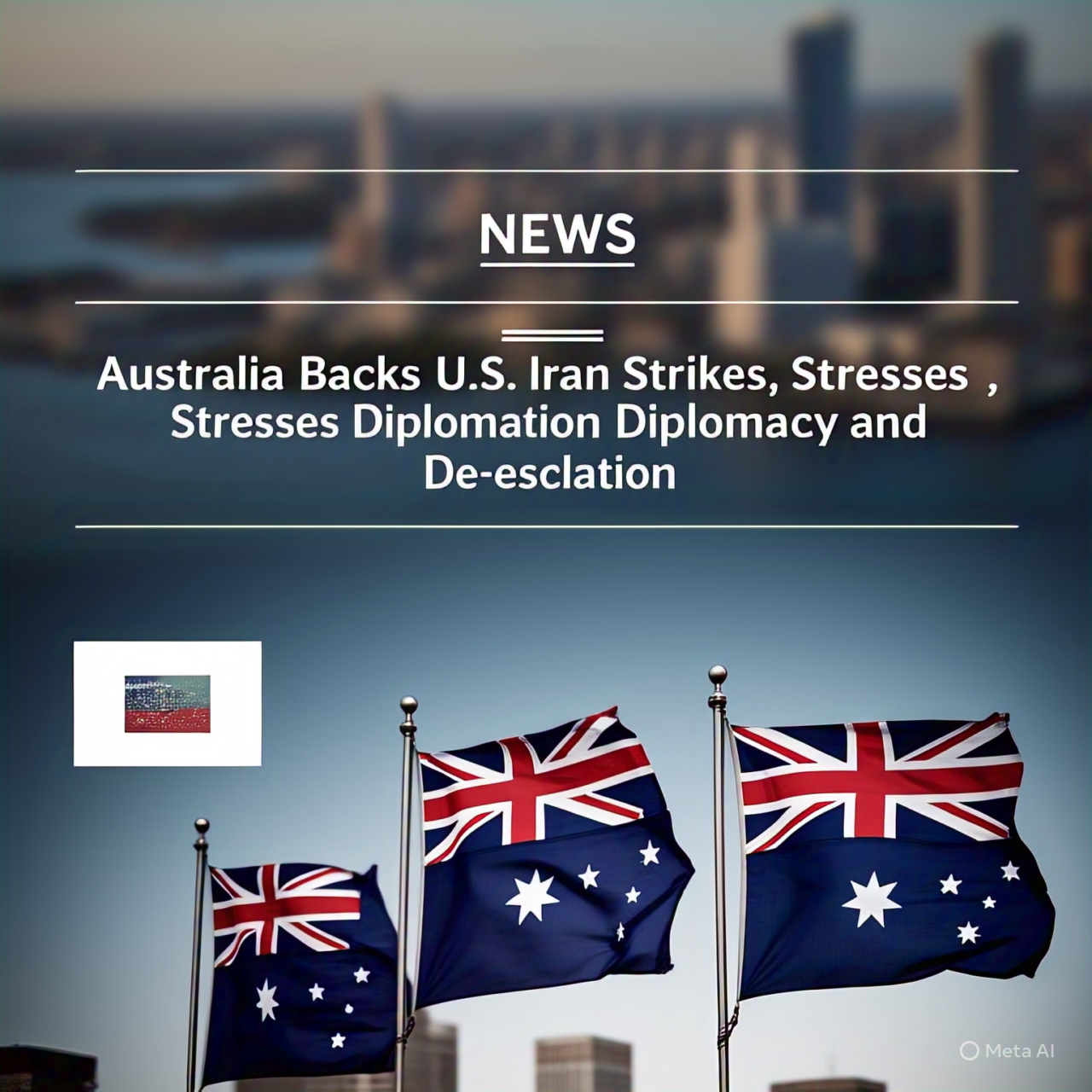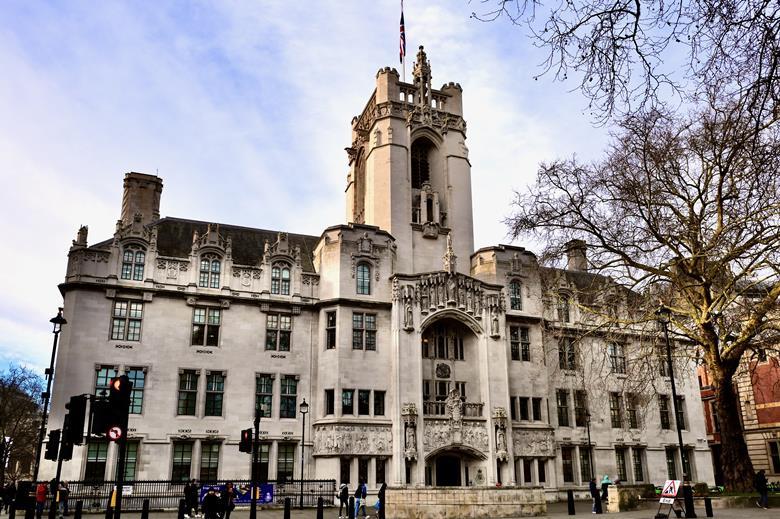Australia has publicly endorsed the U.S. airstrikes on Iranian nuclear sites, citing security concerns over uranium enrichment. While affirming its non-military role, the government emphasized diplomacy, announced evacuation plans for citizens in the Middle East, and acknowledged economic fallout.
🇦🇺 A Strategic Shift in Australian Foreign Policy
On June 23, 2025, Australia took a decisive position on the global stage by publicly supporting recent U.S. military strikes on Iranian nuclear facilities. Prime Minister Anthony Albanese emphasized that the strikes aimed to halt Iran's nuclear ambitions and protect long-standing international commitments to non-proliferation. In a carefully worded statement, he reinforced Australia’s stance against nuclear armament and affirmed the country's solidarity with its Western allies.
While acknowledging the gravity of the U.S. action, Albanese also called for restraint and immediate diplomatic efforts to avoid further escalation in an already volatile Middle Eastern climate. His statement was deliberate: Australia supports the objective but remains firmly opposed to direct military involvement.
🧭 Balancing Support with Sovereignty and Caution
Foreign Minister Penny Wong clarified that Australia was not militarily involved in the operation. She confirmed that the U.S. had acted unilaterally, without requesting any direct assistance from Australia. According to Wong, the Australian government’s position is grounded in principle — standing with allies while urging a return to diplomatic negotiations to resolve disputes and prevent regional destabilization.
Australia’s approach signals a calculated diplomatic maneuver, maintaining strong international relationships while cautiously steering clear of military entanglement.
✈️ Embassy Closure and Evacuation Strategy
Following the strike, the Australian government closed its embassy in Tehran due to mounting safety concerns. Consular officials were relocated to neighboring Azerbaijan, where they are now coordinating with the Department of Foreign Affairs and Trade to help Australians seeking to exit the region.
An estimated 2,900 Australians are currently in Iran, and about 1,300 in Israel, both now facing uncertain conditions. The government has activated contingency plans that include military aircraft for possible evacuations and coordination with allied nations for safe passage routes via land and air. While evacuation is not yet underway in full force, preparations suggest Australia is bracing for an unpredictable situation.
📉 Economic Shock: Market Volatility and Petrol Prices
Domestically, the ripple effects of the conflict have been felt in the economy. The Australian Securities Exchange (ASX) saw losses exceeding A$10 billion, largely attributed to investor anxiety following the Middle East strikes. Energy prices surged, with petrol costs increasing across major cities as global oil markets reacted to fears of disrupted supply chains from the Gulf region.
These developments added another layer of urgency for the Australian government. With inflation already posing challenges, an increase in energy prices could put further pressure on households and small businesses.
🗳️ Political Reactions and Public Debate
Australia's support of the U.S. action sparked mixed reactions in the political sphere. The opposition largely backed the government’s stance, seeing it as a necessary response to the threat of nuclear proliferation. However, Greens senators and some independent MPs questioned the legality of the strike and whether Australia’s support was consistent with international law and Australia’s reputation as a peace-promoting nation.
Human rights groups and some academic voices also raised ethical concerns, warning that military action could further destabilize the region, risking civilian lives and fueling anti-Western sentiment. Within the public, conversations on social media and talk radio reflected a spectrum of views — from strong support for decisive action, to fear of Australia being drawn into a broader conflict.
🔍 Strategic Installations: The Pine Gap Factor
One underlying concern that emerged from foreign policy analysts was the role of the Pine Gap joint defense facility in Australia’s Northern Territory. Pine Gap is known for its surveillance and signals intelligence capabilities and is jointly operated by Australia and the United States.
Though officials made no public comments on Pine Gap’s role, experts suggested it may have played a behind-the-scenes role in providing intelligence or satellite data. If confirmed, it could make Australia a target for retaliatory cyber or military threats, raising questions about how deep Australia’s strategic support may truly run.
🌍 Global Responses: Allies and Critics Speak Out
International reactions to the strike and Australia’s position have been divided. Canada, the United Kingdom, and Germany expressed cautious support for the objective of halting Iran’s nuclear progress, echoing the need for containment while calling for diplomatic channels to remain open.
Conversely, China and Russia condemned the U.S. strike, calling it a violation of international norms. Several countries in the Global South joined the chorus urging a halt to all hostilities and the immediate return to negotiation tables.
Australia, positioned between its Pacific identity and its Western alliances, once again finds itself walking a diplomatic tightrope — aligning with key partners while preserving its reputation as a mediator and peace-keeping nation.
🛡️ Public Safety and Military Posture
The government has reassured citizens that no Australian combat troops will be deployed. All military planning underway is solely for logistical support, primarily evacuation and humanitarian efforts.
However, Defense Minister officials acknowledged that regional unpredictability could force rapid policy adaptations. The possibility of deploying Australian naval resources to secure trade routes in the Indian Ocean and support allied fleets in the region has not been ruled out. For now, the emphasis remains on containment and crisis management, not escalation.
📊 Broader Implications for Australian Foreign Policy
This moment represents more than just a foreign policy alignment — it is a stress test for Australia’s diplomatic strategy in an age of multipolar conflict. As global powers clash, Australia’s need to balance defense readiness, economic resilience, and democratic values is more pressing than ever.
Australia’s choice to support the U.S. while publicly championing de-escalation showcases a foreign policy doctrine built on dual messaging: firm in principle, but flexible in action. Whether this approach will serve the nation well in an increasingly divided world remains to be seen.
📝 Closing Thoughts for Guest Writers
This story offers powerful material for any government, foreign policy, or political opinion blog. You can frame it as a timely case study in:
- Government crisis communication
- Economic ripple effects of global conflict
- Australia’s role in Western military alliances
- Public expectations versus political decisions

















Comments 0